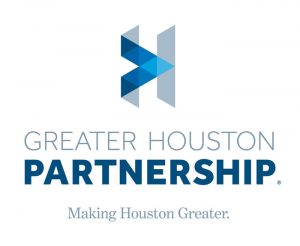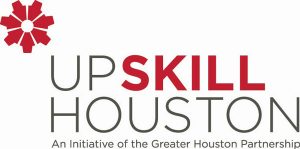INNOVATION
Texas State Profile
Educate Texas, Communities Foundation of Texas
Dallas, TX
Greater Houston Partnership
Houston, TX
Texas Association of Community Colleges
Austin, TX
Texas Business Leadership Council
Austin, TX
Texas Student Success Council
Austin, TX
Educational and Workforce Landscape
Secondary K–12
Governed by:
Texas Education Agency
Public school enrollment K–12:
5,249,038
Public school enrollment 9–12:
1,667,861
Graduation rate: 90.0%
CTE Participation rate:
663,172
CTE graduation rate: 97.02%
Postsecondary
Governed by:
Texas Higher Education Coordinating Board
Enrollment/Completion Data:
- 1,335,135 students enrolled as of Fall 2022
- 280,875 degrees awarded in FY 2022
- 40,121 certificates awarded in FY 2022
Texas Higher Education Coordinating Board (http://www.txhighereddata.org/)
Number by Type of Schools
- 2-year Community College: 50
- 4-year Public University: 37
- 4-year Private University: 38
- 2-year Technical College: 6
Workforce
Workforce Agency:
Texas Workforce Commission
Top Industries/Jobs:
The State of Texas focuses on the following industry clusters:
- Advanced Manufacturing (e.g., Toyota, Caterpillar, NXP Semiconductor, Tesla)
- Aerospace, Aviation & Defense (e.g., Lockheed Martin, Southwest Airlines, Ratheon, Bell Helicopter)
- Biotechnology & Life Sciences (e.g., McKesson, Medtronic, Abbott, Tenet Healthcare)
- Energy (ExxonMobil, Baker Hughes, Phillips 66, Halliburton);
- Information Technology (e.g., AT&T, Dell, HPE)
- Petroleum Refining and Chemical Products (e.g., Valero Energy, Dow, Westlake Chemical, Chevron Phillips Chemical Company)
- Corporate Services (55 Fortune 500 companies are headquartered in Texas — more than any other state) with financial services, insurance, data services, back office and IT operations, legal and professional services.
Job Openings to Worker Ratio
- Total Non-Farm Employment — 13,969,100
- Jobs Change Over the Year — 441,700
- Annual Job Growth Rate — 3.3%
Texas LMI, July 2023 (https://texaslmi.com/)
Points of Interest
House Bill 8 (2023) transformed the state’s community college finance system into an outcome- and performance-based system focused on “credentials of value.” This creates significant alignment with the state’s higher education plan, Building a Talent Strong Texas.
College & Career Pathways Successes
Legislation to Support Pathways
Recent successes from the 88th Legislative Session (2023):
- HB 8 establishes a new outcomes-based funding formula for community colleges. The new formulas are designed to align policy and funding incentives with the changing needs of the workforce. The bill establishes the Financial Aid for Swift Transfer (FAST) program to allow economically disadvantaged students to access dual credit opportunities at no cost.
- HB 2209 established incentives for multi-district Rural Pathway Excellence Partnerships (R-PEP) enabling districts with less than 1600 students to partner with neighboring districts to offer pathways that align with regional market needs.
- HB 1755 Creates the Lone Star Workforce of the Future Fund which provides funding for skills training and education programs for middle-skill jobs in high-demand industries. The bill also supports internships, apprenticeships, and work-based learning.
- SB 1887 establishes the “Texas Direct” program designed to serve as a transfer associate degree to help ensure courses transfer and apply to their 4-year degree programs. Reflects the collaboration fostered by THECB through the Texas Transfer Framework between 2-year and 4-year institutions to define Field of Study (FOS) curricula for the most common, in-demand degree pathways.
- SB 2124 requires school districts and open-enrollment charter schools to automatically enroll sixth grade students in an advanced mathematics course who performed in the top 40 percent on the fifth grade state mathematics assessment or a local measure demonstrating proficiency.
- SB 2294 adjusts the Texas First Early High School Completion Program to provide financial support for students who graduate high school early and enroll in any higher education institution.
Steps to success
Pre-apprenticeship programs for commercial electricians (e.g., Trio Electric, Spring Branch ISD, Houston Community College).
Meet the Site Partners
Lead Organization: Educate Texas
Educate Texas, an educational initiative of Communities Foundation of Texas, is the trusted change agent to strengthen Texas public and higher education. For more than a decade, we have worked side by side with our partners to empower students to realize their dreams and fuel a thriving Texas.
As an education strategy, practice and policy partner, we are the only organization in Texas that holistically leads education initiatives from idea to impact. To do this, we have launched our 2025 Strategic Plan, which includes a focus on what we call the three P’s:
- Partners — Involve the right parties and convene for action
- Programs — Innovate and prove them in practice
- Policies — Instill evidence-based practices and policies for enduring impact and scale
Our Strategy 2025 Plan goals include:
- Contribute 85,000 degrees/credentials to the state by 2025 in alignment with Texas Higher Education Coordinating Board’s state goals on higher education, Building A Talent Strong Texas, and
- Contribute at least 100,000 effective and diverse educators by 2023, through developing and advancing programs, policies and partnerships that attract, prepare, develop, and retain teachers and education leaders.
Educate Texas is committed to identifying and scaling innovative and promising practices that ensure equitable access and support to students as they navigate pathways. We are also committed to supporting sector-based partnerships that connect students to careers. We are guided by our vision that all Texas students, especially African-American, Latino or economically disadvantaged students, earn a college degree or credential that leads to a living wage and thriving communities.
David Deggs, Ph.D.,
Director, Higher Education Programs
Greater Houston Partnership / UpSkill Houston
 The Greater Houston Partnership is the region’s premier business association that brings together community-minded business leaders who want to be involved in Houston’s positive growth and influence its economic trajectory. Its Regional Workforce Development initiatives enable business, industry, education, and community leaders to partner and collaborate in developing a “work-ready workforce” for the Houston and Texas Gulf Coast region. The Partnership’s workforce development initiative is a nationally recognized employer-led initiative.
The Greater Houston Partnership is the region’s premier business association that brings together community-minded business leaders who want to be involved in Houston’s positive growth and influence its economic trajectory. Its Regional Workforce Development initiatives enable business, industry, education, and community leaders to partner and collaborate in developing a “work-ready workforce” for the Houston and Texas Gulf Coast region. The Partnership’s workforce development initiative is a nationally recognized employer-led initiative.
 This work focuses on preparing the region’s Workforce of the Future (through its UpSkill Houston initiative) and Low-Wage Workforce (through its Houston Back on Track initiative). In the Houston region, there are nearly 1 million good jobs that require education and skills beyond a high school diploma but less than a four-year college degree (i.e., middle-skill occupations) and our region faces a skills gap. Employers in our region (including energy, healthcare, transportation, manufacturing) need these skilled workers to grow their businesses and be competitive globally.
This work focuses on preparing the region’s Workforce of the Future (through its UpSkill Houston initiative) and Low-Wage Workforce (through its Houston Back on Track initiative). In the Houston region, there are nearly 1 million good jobs that require education and skills beyond a high school diploma but less than a four-year college degree (i.e., middle-skill occupations) and our region faces a skills gap. Employers in our region (including energy, healthcare, transportation, manufacturing) need these skilled workers to grow their businesses and be competitive globally.
Our approach is to mobilize the collective action of employers, educators and community-based leaders to strengthen the talent pipeline of skilled workers that employers need and to create better pathways to opportunity and prosperity for all Houstonians. It is essential, therefore, that we develop and strengthen the skills of our residents – in light of the virtuous cycle of education which improves long-term business growth, regional economic competitiveness, and economic mobility and prosperity for the region’s residents.
In the Houston region, we are concerned that up to 75% of the region’s “incoming workforce” may lack required skills/education needed for success in today’s economy (i.e., they don’t have a post-secondary credential or skills beyond a high school diploma). Through Launch, we want to ensure the “Region’s Workforce of the Future” is ready for success in a knowledge-based, technology enabled economy which is accelerating and changing the skills our businesses and residents need for long-term success. Launch will help us to strengthen ISD Career and Technical Education (CTE) programs that connect into community college technical programs – improving the career pathways into good middle-skill jobs in the region. It will also improve how we engage industries and employers to support students and young adults navigating their way through the region’s education systems to get their first good job.
As we look across the country, there is no city that will have more skills change and potential disparities in wealth and income than Houston. So, as the Houston and Texas economies accelerate their evolution from industrial ones into knowledge-based, technology-enabled ones, it will be imperative for employers, educators, and community leaders to come together in regions like Houston and across Texas, with greater focus, urgency and agility to develop solutions that ensure we have the skilled talent that can sustain the economic growth and global competitiveness of our regions and the state, as well as providing economic mobility and prosperity for current and future residents.
Peter Beard,
SVP for Regional Workforce Development
Texas Business Leadership Council
The Texas Business Leadership Council (TBLC) is a statewide network of CEOs and senior business executives who advance a long-term vision of a prosperous Texas in a globally competitive business environment. The TBLC brings expertise, research, financial resources, and advocacy to the leaders of Texas state government to provide a unique view of the potential outcomes of legislation, regulation, and statewide funding.
TBLC is committed to research, education, and impact:
- TBLC commissions various research studies pertaining to the critical issues facing our state. Research focused on education and infrastructure allows us to best understand the opportunities and challenges facing Texas.
- TBLC membership continually seeks opportunities to educate themselves on the many important policy issues impacting our state by listening to industry leaders and engaging in action-oriented conversations during task force meetings.
- TBLC develops close relationships with like-minded organizations. We work together to utilize resources and achieve common goals.
- The TBLC makes influential recommendations as a coalition of Texas CEOs. Strategic research, ongoing education and smart collaborations allow TBLC membership to develop thoughtful and comprehensive solutions to present to state leadership encouraging a healthy and vibrant business climate.
Texas is one of the best places in the world to do business and more than 1,000 people a day are moving to the Lone Star State to chase their American Dream. Young Texans not only have to compete for jobs amongst themselves, but also against people moving here. This competition for talent should be a boon for employers but since the pandemic, skilled labor has come at a premium. Texas businesses are hungry for applicants who not only demonstrate mastery of hard skills but who also have the “soft skills” necessary to be a part of their team. The Texas Business Leadership Council is working with education partners, community leaders, and our members to make sure our young Texans have all the skills necessary to find a place to land after they complete their credentials of value.
Justin Yancy,
President, Texas Business Leadership Council
Texas Association of Community Colleges
Texas Association of Community Colleges (TACC) is an association that serves public community college districts in Texas and has as its primary mission – advocacy to help advance policy development, innovation and institutional practices in higher education. TACC provides a common voice and focused strategy, builds trustworthy relationships with the Texas Legislature and policymakers, and creates meaningful multisector partnerships on behalf of the Texas community colleges we serve. TACC also supports the Texas Success Center and the Community College Association of Texas Trustees.
Texas Success Center
Texas Success Center is dedicated to the socioeconomic mobility of Texans. It achieves this mission by:
- building the capacity of Texas Association of Community Colleges member colleges to implement and scale systemic reforms to improve student learning and success,
- building the capacity and sustainability of the Texas Association of Community Colleges to support and evaluate colleges’ student success strategies, and
- informing public policy to enhance colleges’ student success efforts.
The Texas Success Center, a member of the national Student Success Center Network, designs and manages the coherent, statewide framework for action and supports the 50 community college districts in the state as they evaluate, align, and integrate their work to increase student success through Texas Pathways strategy.
This comprehensive reform strategy reflects the Texas Association of Community Colleges’ dedication to socioeconomic mobility through career-focused postsecondary success. The association founded the Texas Success Center to provide statewide coordination of student success strategies and to tighten the linkages between practice, research, and policy.
All Texas community colleges have committed to Texas Pathways to implement guided pathways at scale. The Texas Success Center supports all community colleges as they build capacity to implement and scale practices to help more students earn meaningful credentials, transfer to universities with no loss of credit, and gain employment in careers with value in the labor market.
Texas School Alliance
The Texas School Alliance (TSA) represents 45 of the largest school districts in Texas. TSA districts educate 40% of the state’s students, 43% of the state’s economically disadvantaged population, and 57% of the state’s emergent bilingual student population. It is a superintendent-led organization which uses a thorough process to research and consider significant education policy issues of the day – ranging from school finance to teaching and learning to assessment and accountability. It also studies specific topics and works to promote and support issues that will improve educational quality for Texas students, particularly those in large and urban districts.
TSA members cover the breadth of Texas’ geographic expanse, with members from the Rio Grande Valley to the Texas Panhandle, from near the eastern border to far west Texas. The membership includes urban, mid-urban, and city- town districts and includes school districts that are both property wealthy and property poor.
Reference Links and More Information
Educate Texas: https://edtx.org/
Greater Houston Partnership/UpSkill Houston: https://www.houston.org/upskillhouston
Texas Association of Community Colleges: https://tacc.org/
Texas Business Leadership Council: https://txblc.org/
Texas School Alliance: https://texasschoolalliance.org/
Texas Success Center: https://tacc.org/tsc

 Impact Site
Impact Site Innovation Site
Innovation Site